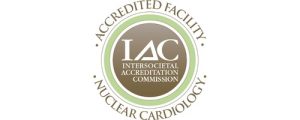Nuclear Cardiology
Our Nuclear Cardiology Department is at our First Hill Clinic and is led by Dr. Philip Massey with Dr. Keiko Aikawa.
At the PacMed Nuclear Cardiology Lab, we are dedicated to partnering with you to prevent heart disease and create a customized treatment plan for your ongoing healthcare needs.
We provide patients with noninvasive nuclear cardiology imaging procedures that are essential for diagnosing various heart diseases.
To help our patients live their healthiest lives, our Nuclear Cardiology Laboratory is committed to excellence in diagnosing and monitoring heart diseases. Our lab holds accreditation from the Intersocietal Accreditation Commission (IAC) in Nuclear Cardiology, and all our technologists are certified by the Nuclear Medicine Technology Certification Board (NMTCB). By striving for excellence, we ensure the highest standards of quality and dedication to superior clinical care for our community.
Procedures Performed:
- Myocardial Perfusion Imaging
- Myocardial Pharmacologic Stress Testing
- Myocardial Exercise Stress Testing
What to Expect for your Nuclear Cardiology Test
A small amount of radioactive tracer will be injected into your bloodstream through an IV. This tracer helps create detailed images of your heart. You will lie still on a table while a special camera takes images of your heart. The camera will capture images at rest and after stress. If your test includes a stress component, you will be asked to walk on a treadmill. If you cannot exercise, you will receive medication to increase blood flow to your heart, simulating the effects of exercise.
You might feel a slight pressure at the injection site or from the camera equipment, but the procedure is generally painless. The entire process, including preparation and imaging, can take a few hours. The actual imaging part usually takes about 30 minutes to an hour.
We welcome any questions you may have about an upcoming exam. It is important to our team that you feel comfortable before, during, and after the exam.
Frequently Asked Questions about Nuclear Cardiology Studies
- What is nuclear cardiology imaging?
Nuclear cardiology imaging uses a small amount of radioactive material customized to your body. It is used to look at the blood flow around the heart, evaluate how well the heart pumps, and see any evidence of a heart attack.
- How should I prepare for the procedure?
Avoid eating, drinking, or taking certain medications for a few hours before the test. Do not consume caffeine (including decaf beverages or chocolate) 24 hours prior to your test. Follow your healthcare provider’s instructions carefully.
Wear comfortable athletic clothes and close-toed shoes.
- What does the equipment look like?
The imaging equipment, called a gamma camera, consists of specialized detectors enclosed within a metal housing ring. It is not an MRI scanner. The camera will sit close to your chest and slowly move in an arc to image your heart from all angles.
- Is it safe?
Yes, nuclear cardiology studies use very small amounts of radioactive materials, which are generally safe. There are no known side effects from the radiopharmaceuticals used. Please notify your healthcare provider if you are pregnant or nursing.
- Will it hurt?
The only discomfort you may feel is from the initial insertion of the IV used to administer the radioactive material. The procedure itself is generally painless.
- How soon can I eat after the test?
You may eat immediately after the test.
- How do I get my results?
A cardiologist will interpret the images and ECG within 2-4 business days. A written report will be sent to your physician, who will discuss the results with you. Results will also be released to MyChart.
If you have any other questions or concerns, feel free to ask your healthcare provider for more information!
Our Nuclear laboratory has been granted accreditation by:



